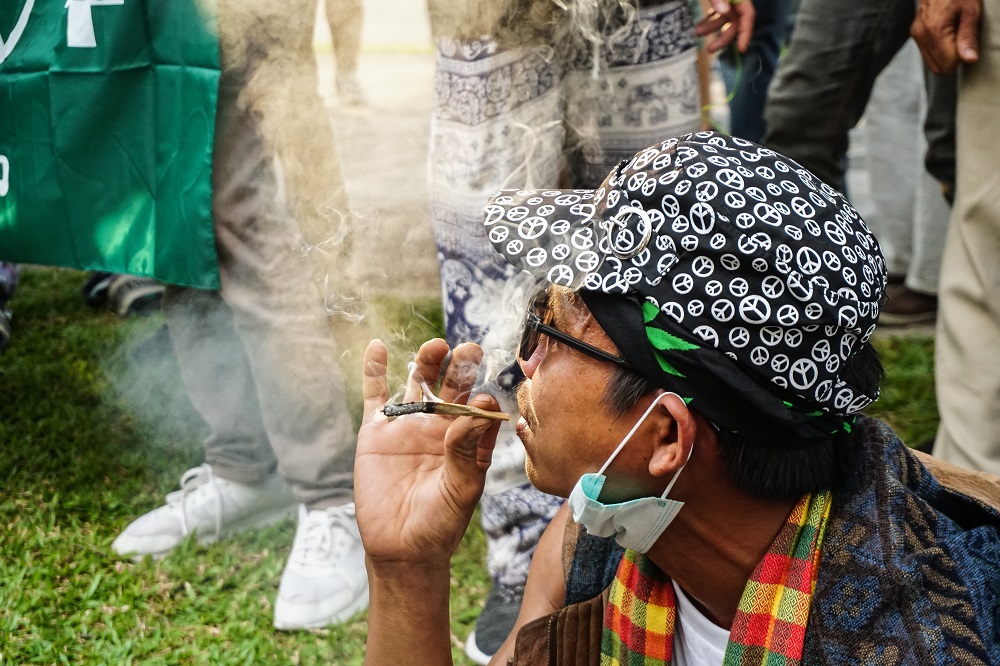Image via
Major political parties in Thailand have delayed a much-anticipated bill to regulate cannabis in the country because it was too amenable to recreational cannabis consumption, Bloomberg reports. The setback will surely resonate among entrepreneurs who saw the decriminalization of the drug in January as a green light to open up weed-vending trucks in tourist-heavy areas.
On Wednesday, the Thai House of Representatives voted 198 to 136 to send cannabis and hemp legislation back to its legislative committee. The bill was introduced by the Bhumjaithai Party, of which cannabis champion Thai health minister Anutin Charnvirakul is a leader, that’s prioritized the legalization of cannabis among its political goals.
Its opposition, which not all cannabis advocates saw coming, was led by a diverse group that included legislators from the Democrat Party (which forms a part of the country’s ruling coalition), and opposition party Pheu Thai. Some surmise that the block was calculated as a power grab in the months leading up to Thailand’s general elections in March 2023.
“The bill doesn’t control cannabis but even promotes it, leaving room for its use to stray from medical to extremely recreational,” Pheu Thai legislator Sutin Klangsang told Forbes. The proposed legislation did include protections for the public consumption of marijuana, which likely frustrated those who have been dismayed over the $20/gram-selling trucks that have reportedly posted up on Bangkok’s Khaosan Road.
Since it was announced that cannabis would be removed from the country’s list of controlled substances — and subsequently, that some forms of cultivation and possession would be decriminalized — many have seen it as only a matter of time before Thailand regulated a commercial industry for recreational forms of weed.
But that may have been wishful thinking. Thai officials have regularly discouraged the idea that these policy changes were targeted at opening access to adult-use cannabis. The country regulated medicinal marijuana back in 2018 and developed a nationwide system of cannabis clinics attached to public health institutions.
On some level, the Thai government has played into the tourism hype. The Thai Food and Drug Administration at one point floated the idea of “cannabis tourism zones.” Officials even promoted a 12-stop cannabis informational tour featuring Charnvirakul that promised to address the drug’s potential for creating new opportunities for visitors to come to the country.
But in August, Charnvirakul appeared to make an about-face, telling the press that, “We don’t welcome” international cannabis tourists. Judging from Wednesday’s vote, it appears that Thai politicians share his reluctance to open the door to 420 good times.
Had the House of Representatives passed the legislation as-is, it would have allowed registered households to grow up to 15 cannabis plants for personal use, though it did set a limit on the amount of acreage that could be used for such cultivation. The bill set up regulations surrounding the marketing of cannabis products. People aged 20 and older would have been able to legally purchase cannabis and hemp products. The legislation would have made cannabis consumption prohibited in spaces, like educational and religious institutions and public parks.











